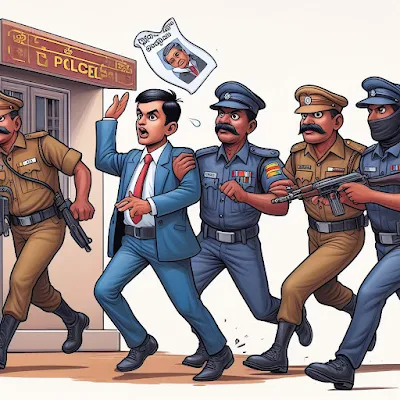Here's how such a scenario might unfold:
Corruption: Individual police officers or entire units may be corrupt, accepting bribes or other forms of inducements to protect politicians engaged in criminal activities. This could range from turning a blind eye to illegal activities to actively obstructing investigations.
Political Interference: Politicians with significant influence may use their power to shield themselves or their allies from legal consequences. This could involve pressuring law enforcement agencies to drop investigations, transfer or demote officers who pursue cases against them, or manipulate legal proceedings.
Lack of Independence: In some cases, law enforcement agencies may lack independence from political influence. If they are controlled or heavily
influenced by the ruling party or specific politicians, they may prioritize political considerations over impartial enforcement of the law.Weak Institutional Oversight: Weak institutional oversight mechanisms, such as ineffective anti-corruption bodies or judiciary, can exacerbate the problem. Without strong checks and balances, there may be little accountability for those who engage in or enable corruption and abuse of power.
Culture of Impunity: If there is a widespread belief that powerful individuals are above the law and can act with impunity, it can further erode trust in law enforcement and embolden corrupt practices.
Addressing such systemic issues requires comprehensive reforms, including:
Strengthening anti-corruption measures and institutions.
Ensuring the independence of law enforcement agencies and judiciary.
Implementing transparent and accountable governance practices.
integrity and accountability within law enforcement agencies.
Encouraging whistleblowing and protecting whistleblowers.
Fostering a robust civil society that can hold authorities accountable.
Investigating and prosecuting instances of police misconduct or collusion with criminal elements.
Ultimately, combating corruption and ensuring the rule of law requires a sustained effort from both government institutions and civil society to uphold democratic principles and protect citizens' rights.
#Corruption #political #corruption #bribery #police #brutality#Interference #political #manipulation #influence#Law #justice, # legal #integrity#Citizen #Rights #civil #liberties #freedom #speech #transparency



.jpeg)


.jpg)
No comments:
Post a Comment